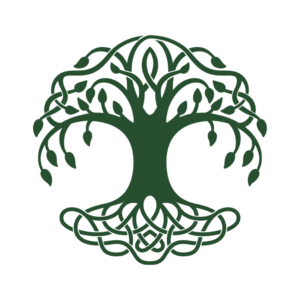1. Attraction – Little effort is required to feeling loving and loved
2. Maintenance – Getting to know each other through day to day living
3. Polarisation – Conflicts and arguments arise that create distance
4. Healing – Conflicts are worked through
5. Intimacy – Trust and good communication bring security and closeness
Attraction – Feeling Loving and Loved
In the Attraction Stage, we usually see the best of each other. We are attracted to our partner’s qualities that compliment us or that we would like more of in ourselves. Attraction as well as being physical is based on common values, similar status, shared ambitions and interests. It also has an unconscious element. Our unconscious attracts us to someone who is“familiar” in some way. We are attracted to someone who fits our unconscious relationship bonding pattern. It’s inevitable at some level we are choosing our partner to love us in the way we wished we were loved. Our relationship allows us to grow from longing for unconditional young love to accepting a mature adult conditional love.
Some couples come for relationship counselling early on in their relationship for some support, or reassurance, or to work through some differences. They wish to build trust. If you start to understand the ongoing impact of the messages you received early in your life about trusting others it can help you build trust now.
Maintenance – Day to Day Living
We get to know each other through the routines of life. A loving emotional bond builds through getting to know the real person and through being known ourselves.The feelings of desire and passion tend to fade unless a couple finds ways to keep their relationship fresh and alive. It’s normal to face some disappointment when our partner doesn’t live up to the image we had of them. At this point, we might not yet feel safe enough to be fully ourselves and say what we feel, so we find ways of avoiding major conflict or feeling vulnerable.
We may avoid the big issues out of the fear of losing the love we want. We are comfortably close, yet avoid becoming closer, even though part of us would like to be. It’s common for couples to be in a distance/pursuer pattern. One partner withdraws, while the other pursues. For some of us our relationship looks fine on the outside, yet on the inside, we are not feeling relaxed and free to be ourselves. Suppressing what we feel leads to a lack of energy and sexual desire. Maybe there is that, ‘something missing feeling?’ or “I don’t feel I am being myself ?” feeling. It could be we are the “good partner” at the cost of our own needs because we learnt that you need to be ‘good’ to loved. Maybe we would like more passion and grit, but we are not sure how to bring it into the relationship. So often the answer seems to be that,” it’s our partner that needs to change”; or the answer seems to be outside the relationship.
Relationship counselling can help you communicate better and feel safe about exploring what’s important to you. We focus on how you as couple create a shared pattern. It’s a relief to be both looking at a shared pattern rather than looking for who is to blame.The best attitude is; “We are in this together” and can work it out with some support. Relationship counselling isn’t just about looking at problems. It’s also about building skills on how to appreciate each other and find ways to nourish your relationship.
Polarisation – Conflicts and Arguments Create Distance
A degree of conflict is part of a healthy relationship. It’s how we communicate and work through our differences that counts. The Polarisation stage is about speaking up for what is important while also being able to stay in our relationship and be open to the opposite points of view from our partner. This can feel impossible when we feel raw and triggered into strong emotion. Arguments become unmanageable; issues can’t be talked over, and resentment builds. We may be caught up in hurt feelings and begin to distrust each other. There might be a sense of failure and a longing for things to go back as they were at the beginning of the relationship. It’s common to wonder, ‘how come other couples we know seem to manage and we are going through this? The truth is Polarisation is inevitable in a healthy relationship. It is triggered by events such as:-
• Making a commitment
• Moving in together
• Getting married
• Just before or soon after having children
• A break of trust
Typically polarisation starts a few years into a marriage or committed relationship where it feels safe to move beyond the maintenance stage. Sometimes a partner attempts to deal with a feeling of disconnection through using pornography, drinking, or having an affair or doing something else that leads to a break of trust. Polarisation is a normal development stage in a relationship. It’s important to go through it to allow your relationship to deepen and for you to be true to who you are.
Our parents/caregivers gave us a model template on how to be in a relationship. It’s where we learnt how to be loved and how to protect ourselves from being hurt. These unconscious bonding patterns remain active and are triggered in response to our partner. Often we protect ourselves by unconsciously trying to control our partner by becoming parental. In response, they defend their activated vulnerable feelings by starting an argument.
It might come as a surprise to discover that you and your partner unconsciously co-create the issues. It takes two. It’s bizarre, yet it’s just how our unconscious works! Have you noticed how you can be more upset with your partner than with anyone else? Some couples are fortunate in that they can “live with” their bonding patterns in relative harmony without needing to look at them. For many of us, spending some time understanding our bonding patterns can free us up from reacting in the same ways and having the same arguments over and over.
Relationship counselling offers a place to explore. We look at how you trigger each other and how to make sense of it, so you can step back, see what is going on, and respond rather than react. You discover that issues can be spoken about and worked through.
Healing – Conflicts are Worked Through
Healing is a process that happens over time as we learn to include both our strength and vulnerability. We appreciate the limits of what our partner can give us, and how to love and nourish ourselves at the times our partner can’t. We take responsibility for the relationship patterns that are no longer serving us. We learn to risk trusting again. Relationship counselling gives you the opportunity/ skills/
framework to stop blaming each other and work together on the shared bonding pattern. You can stay together to work with “the relationship (pattern) as it is” rather than thinking the solution is to find new partners! You can learn together step-by-step, how to love again from a place of authentic intimacy and choice.
Intimacy – Building A Strong Emotional Bond
We all want to love and be loved. In order for ‘a meeting of hearts’ to take place, barriers must be dropped. Intimacy is a challenge as it requires us to step into the unknown, risk rejection and open our hearts. So often in moments of intimacy, we connect to our past longing and dependency. Relationship counselling helps you to take steps towards emotionally connecting to each other and rebuild your emotional bond step by step.
Relationship Stages Summary
Relationships are a great challenge for most people. Some couples never dare to discuss how they really feel inside (they stay in the Maintenance Stage); Others put up with conflict and hostility (they stay in the Polarisation Stage) or believe the solution is to leave their relationship (the denial of one’s own pattern to avoid working through the Polarisation stage.)
Paradoxically, it’s just at the point when everything feels stuck and hopeless, and in crisis, that there is the motivation to face up to what is not working. A relationship counselling session weekly or once every other week is a powerful transformational process. My experience is that most couples find getting help a relief, and those who are willing to take an honest look at what is going on, worthwhile.
(I wish to give acknowledgement toThe Centre for Gender Psychology for this Pyramid Model).




